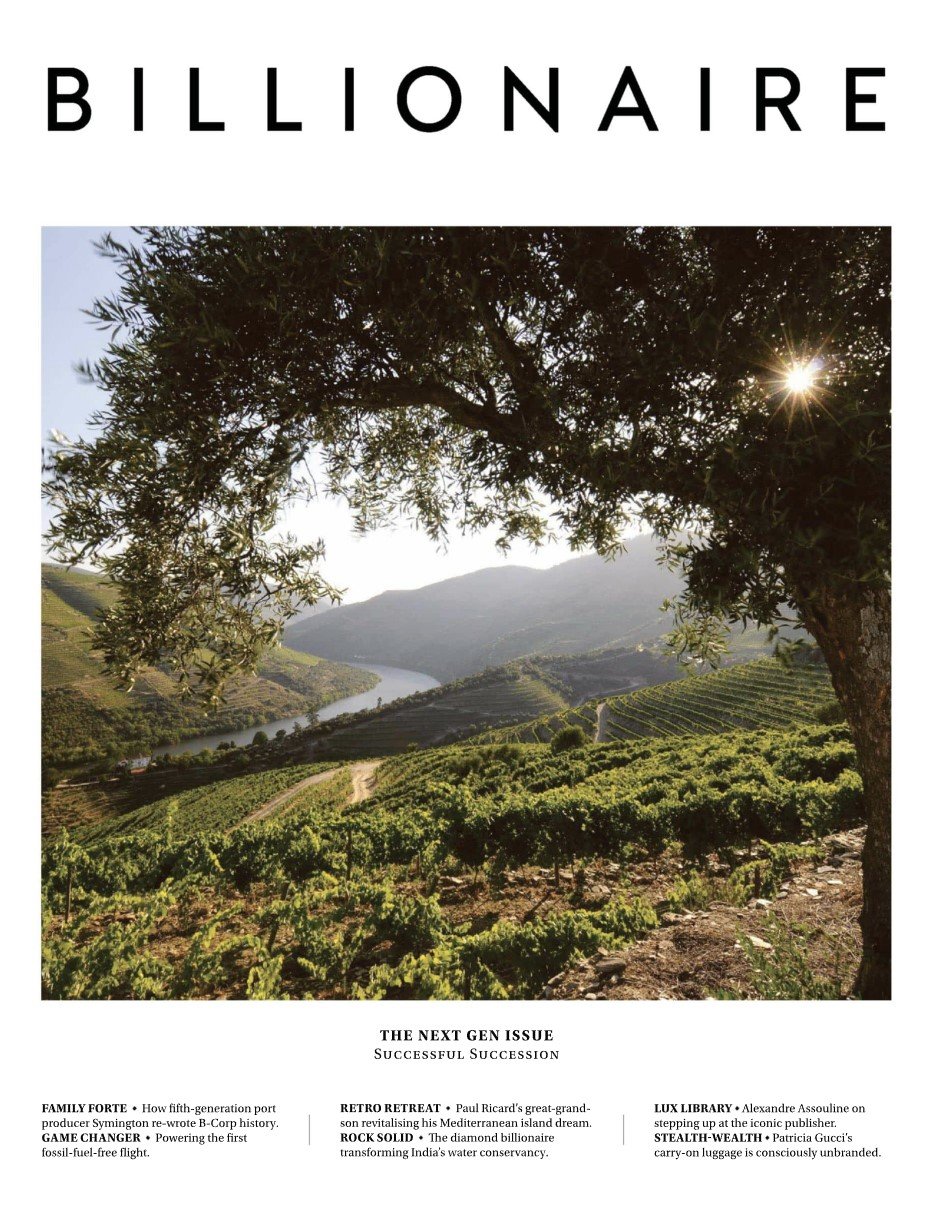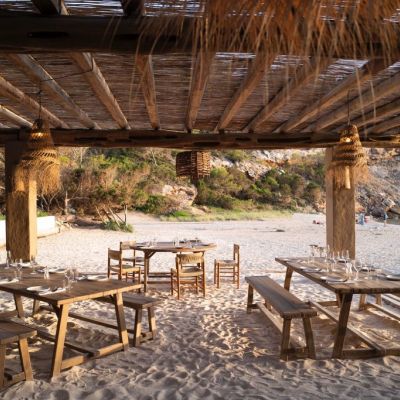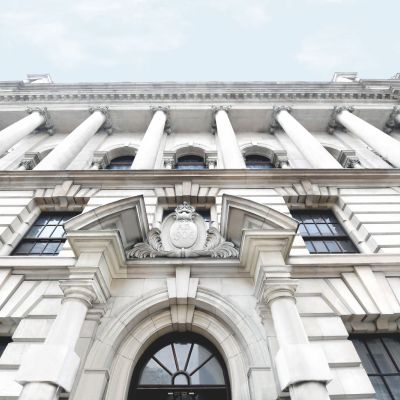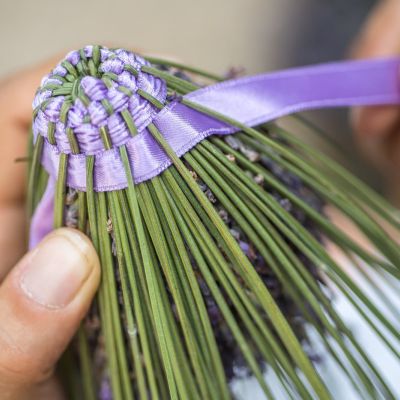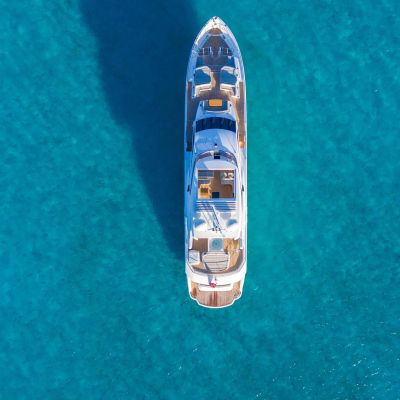No Man Is An Island

The younger generations of two French families are joining forces to create an iconic, heritage hotel on an island in the Mediterranean.

When you land on the Île de Bendor, a tiny island off the French town of Toulon, you can’t miss the large white monolith at the entrance of the marina. It is inscribed with the words Nul bien sans peine (no pain, no gain) the personal philosophy of industrialist Paul Ricard, the island’s owner.
Ricard, who made his fortune pioneering pastis, bought the island in 1950 as a retreat for friends and family. It became a place to find respite after years following a strict work ethic. As the story goes, Ricard harboured dreams of becoming a painter, and never wanted to join the family wine business, but his father forced him into it. Despite his initial reluctance he put his every effort into the job, and by the time of his death in 1997, after merging with rival Pernod in 1975, the company was the second-largest global spirits firm.
Île de Bendor always held a special place in his heart. It was an uninhabited rock when he bought it, but with his Midas touch, within a decade the island had become a magnet for the well-heeled and glamorous, from artist Salvador Dalí to actress Mireille Darc.
His vision is now at the forefront of a project brought by the Ricard family members, to completely transform the island into one of the most iconic tourist destinations in the Mediterranean.

It was Ricard’s great-grandson Marc de Jouffroy, who sits on the board of the family business, who has spearheaded the island’s development. Having spent every childhood summer holiday on the island, and recently held his wedding there, it speaks to him. “The fact that this island remains in our family after more than 70 years is a blessing,” he says, in an interview with Forbes.
“Île de Bendor is a little world in itself... it allows instant disconnection yet is easily accessible... evoking all the sense, the sea is always in sight, you can hear cicadas and friends playing pétanque, the air is scented with lavender, rosemary and jasmine,” he adds.
For the last decade or so, de Jouffroy, who previously worked at Club Med, had started to feel the island was not getting the attention it deserved. He was ultimately responsible for persuading senior board members of Société Paul Ricard, a group of some 60 family members, that the time was right to redevelop the island.
In January 2021 they went out with a tender process to the world’s hotels, looking for the right pair of hands to take on this project. Some 14 of the world’s top hotel groups put their hats in the ring, testimony to the enthusiasm for such a rare project. In the end, the board decided to give the mandate to redesign and run the hotel for the next 15 years to a smaller, family-run brand called Zannier Hotels, founded by second-generation French entrepreneur Arnaud Zannier, son of renowned fashion designer Roger Zannier.
“We were honoured to be chosen against such competition,” says Arnaud Zannier. “They liked our emphasis on preserving the legacy, ethos and vision of Paul Ricard, which was to create a welcoming island. He reportedly said, ‘it is too beautiful to keep for myself’, and we agree.”

Construction on the project is already underway, after a specially designed boat was customised just to ship materials from the mainland. There will be 93 rooms spread across several different renovated buildings on the island, including the old Delos hotel building, with its glamorous history of the 1960s on the French Riviera. On the east side of the island, former hotel Soukana will be renewed into a more contemporary building, while the middle of the island will feature five rustic fisherman houses, capturing the Provençal charm. Visitors will be able to visit some of the original locales such as Café Paul Ricard, a bar called Patrick, after Paul Ricard’s son, as well as the beach club and diving centre, a spa, tennis facilities, bar and restaurants. The private residences of the Ricard family members will also be renovated and remain separate to the hotels.
“The artisans on the island were always important to Paul Ricard, such as pottery makers, bakers and glassblowers, and it is important to the Ricard family to keep the same creative community,” says Zannier. Accordingly, an artisan village and a ‘Nonna Bazaar’ will be central to the experience.
A 10-minute ferry ride from Bandol on the mainland, Zannier hopes that the island will also become a destination for superyacht owners to visit, as much a part of the Mediterranean milk run as Saint-Tropez and Cannes. The entire renovation is expected to be complete by 2026.
So much did Paul Ricard love island life, he bought neighbouring island Île des Embiez a few years later. After his death, it became his final resting place. There are also plans to also breathe new life into this island, however for the moment the focus is Île de Bendor, says Zannier.
After buying the islands, Ricard also became a committed environmentalist. Shocked by industrial waste released into the Mediterranean, Ricard campaigned against pollution and in 1966 founded the Paul Ricard Oceanographic Institute, which to this day is based on Embiez. It still carries out research and campaigns for marine issues.
“Sustainability was key to maintaining Ricard’s legacy in this project,” says Zannier, adding that the goal is to obtain BREEAM certification for the construction. The project will be the sixth hotel for Zannier, who initially followed his father into the fashion business, before setting up his first hotel in 2011 in the French Alps, Le Chalet, and Phum Baitang in Cambodia, which became famous after Angelina Jolie booked it out for several months while filming First They Killed My Father.
“It’s about creating places with an emotional connection, which create a journey of discovery,” says Zannier. “And for that you have to not make any concessions, you have to follow your heart.”
This article originally appeared in Billionaire's Next Gen Issue. To subscribe click here.

